
According to officials close to the negotiations between Iran and the United States, Russia, China, Britain, France and Germany (the P5+1), the most that can be hoped for is an agreement to hold more detailed discussions in a few weeks.
"Iran's most recent response specifically said that they are prepared to sit down and talk about the nuclear issue. For us (Saturday) is about testing that," one envoy said ahead of the talks between top diplomats.
"We don't expect to get a lot of detail ... but it will be about possibly meeting again in four to six weeks time if we can, when we will get into that detail," the diplomat said on condition of anonymity.
The main concern of the international community is Iran's growing capacity to enrich uranium, which can be used in power generation and other peaceful uses but, when purified further, for a nuclear weapon.
Of particular worry is the formerly secret Fordo site in a mountain bunker near the holy city of Qom, currently enriching to 20-percent purity but which experts say could be reconfigured to produce 90-percent weapons grade material.
The growth of Fordo, plus a game-changing UN atomic agency report last November on alleged "weaponisation" efforts, have led to tighter EU and US sanctions on Iran's oil sector due to bite this summer and talk of Israeli military strikes.
Highlighting the deep mistrust and the major differences to overcome, a source close to the Iranian delegation led by Saeed Jalili said Friday that Western comments ahead of the Istanbul talks did not "give us much hope."
"So far the Iranian delegation finds the Western position ... disappointing and discouraging," the source, wishing to remain anonymous, told AFP.
Following earlier false starts, Western governments -- and in particular US President Barack Obama as he seeks re-election this November -- are wary of finding themselves accused of being duped by empty Iranian promises.
As a result they have stressed the need for the Iranian "seriousness", with Group of Eight (G8) foreign ministers this week highlighting Tehran's "persistent failure to comply with its obligations."
"If Iran turns up for the meeting in the same spirit of 'Istanbul I', we're not going to get very far," one P5+1 source told AFP, referring to the last stab at talks in this Turkish city in January 2011.
US media reports meanwhile have suggested that the P5+1 want Iran to halt enrichment of uranium to purities of 20 percent, shutter Fordo and send Tehran's stockpiles of enriched uranium abroad.
The world powers also want Iran to grant the International Atomic Energy Agency greater access to ease fears that it might have covert facilities, and to answer accusations made in the IAEA's November report.
But comments from Iran, most notably from President Mahmoud Ahmadinejad, underline that Tehran will not consent to anything that infringes on its right to peaceful nuclear activities without promises that sanctions will be lifted.
"Iran will ultimately insist upon a guarantee ... that it has the right to enrich uranium," Mark Hibbs, analyst at the Carnegie Carnegie Endowment for International Peace, told AFP ahead of the talks.
COMMENTS (2)
Comments are moderated and generally will be posted if they are on-topic and not abusive.
For more information, please see our Comments FAQ
1736816645-0/Elon-Musk-(3)1736816645-0-405x300.webp)


1737286368-0/trump-(1)1737286368-0-165x106.webp)


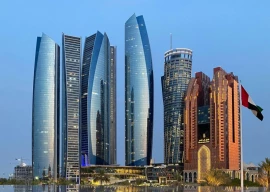


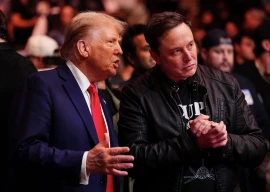

1737185197-0/Express-Tribune-(2)1737185197-0-270x192.webp)
1737188551-0/Untitled-design-(97)1737188551-0-270x192.webp)
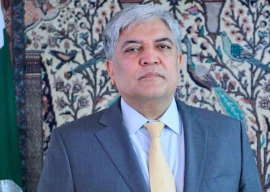
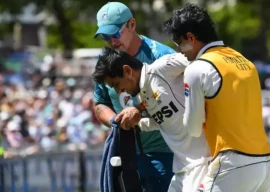
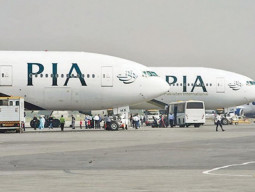
1737114296-0/Express-Tribune---News-Desk-(4)1737114296-0-270x192.webp)
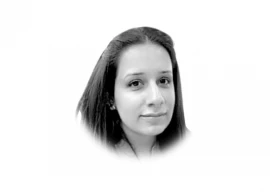





All I can see is a desperate P5+1 who wants to strip Iran of it's nuclear rights while protecting Israel's known stock of A bombs.
where is Israel in these talks who has problem from Iran nuke. ..........